So You Think You Know Everything About Cops: A Quiz
I’ve been writing this blog for nearly eleven years and I have to say, it’s sometimes tough to come up with a new topic each and every day. However, as long as writers continue to write stories about cops and crime, I suppose there’ll always be questions that need answering.
Today, though, I thought I’d put the shoe on a different foot and have you, the blog reader, answer the questions. I want you to see just how much you know about the world of cops and robbers. After all, it’s what you write … right?
So here’s a little self-test. The answers are highlighted. Would you have selected the correct responses?
(By the way, I’ve seen each of these used incorrectly in at least one book, or on someone’s blog)
1. Revolvers eject spent brass with each pull of the trigger. T or F
2. Thermal imagers can “see” through black garbage bags, allowing officers to identify the contents without opening the bag. T or F
3. How many locks are on a pair of handcuffs? One, Two, Four, or Six?
4. Speed Loaders are competition shooters who are extremely skilled at loading their weapons in a very short amount of time. T or F
Read about speed loaders on a past blog post at https://leelofland.com/dump-pouches-v-speed-loaders/
5. Vehicles almost always explode when hit by gunfire. T or F
6. DNA evidence is used to convict defendants in nearly every case. T or F
7. The FBI can take over any case from local police, at any time. T or F
8. Kevlar vests worn by officers (or similar types) are designed to stop punctures from knives and other sharp objects. T or F
9. Are cops required to advise a suspect of Miranda (you have the right to…etc.) the moment they’re arrested? No, only when suspects are in custody AND prior to questioning. No questioning = no advisement of Miranda. Some departments, however, may have policies that require Miranda advisement at the time of arrest.
10. Are police officers required by law (in every state) to wear seat belts while operating a police car? No. In fact, some state laws also allow certain delivery drivers to skip buckling up (USPS letter carriers, for example).
11. Are all deputy sheriffs sworn police officers? No, normally deputies who work in the jails are not police officers.
12. Some California sheriffs also serve as county coroner. T or F
13. Small town police departments never investigate murder cases. T or F
All police officers are trained to investigate crimes, and small town officers investigate homicides all the time.
14. Robbery and burglary are synonymous. T or F
15. Narcotics dogs are fed small amounts of cocaine at an early age to get them used to the drug. T or F
16. Shotguns and rifles are basically synonymous. T or F
17. It’s fairly easy to knock someone unconscious with a quick blow to the back of the head, or neck. T or F
18. No one has ever escaped from death row. T or F
19. CornerShot is a bendable device that allows officers to shoot around corners. T or F
Read about CornerShot https://leelofland.com/corner-shot-who-says-bullets-dont-bend/
20. Cops are trained to aim for arms, legs, and/or to shoot a knife or gun from a suspect’s hand. T or F
Officers are taught to shoot center mass of their target. It is extremely difficult to hit small, moving targets while under duress. Again, officers DO NOT shoot hands, legs, elbows, or weapons (well, not on purpose).
21. Officers always shoot to kill. T or F
Police officers are NEVER trained to “shoot to kill.” Instead, they’re taught to stop the threat. When the threat no longer exists the shooting stops, if it ever starts. Often, the threat ceases before shots are fired.
22. It would be fantastic if the Writers’ Police Academy could feature a Guest of Honor who’s published in over twenty-five languages, has written over 200 novels, and has a whopping 60 million books in print.2019 event. T or F ?????
Today’s Mystery Shopper’s Corner
Since the holiday season is nearly here, I’ve decided to feature a few fun items for your mystery shopping needs and wants. Hopefully, I’ll post these regularly throughout the remaining weeks of 2018.
So, for day two of MSC, especially for those of you who’re shopping for writer friends who enjoy a bit of research and/or relaxation, here are my picks.
First up, a handy guide book used by police officers in the field. Each recruit in the academy where I taught received a copy during their basic training. It’s full of useful information for writers who write about cops. I purchase a copy each year so I have current laws and regulations at my fingertips …
Of course, like my bony friend at the top of the page, all crime writers should have a copy of Police Procedure and Investigation.
The Choirboys by Joseph Wambaugh, THE cop author, was a police officer with the LAPD for 14 years. His bio states – “the author of more than 20 works of fiction and nonfiction, all written in his gritty, distinctive noir-ish style. He’s won multiple Edgar Awards, and several of his books have been made into feature films and TV movies.”
Wambaugh also wrote The Onion Field and The Blue Knight, among other wildly successful books. He’s been a supporter of the Writers Police Academy since our early days. Do yourself a favor and read a Wambaugh book as soon as you can get your hands on a copy.
One of the first books recommended to me during my police academy train was Street Survival, offered by Calibre Press, the publisher who specializes in cop training books. It’s still widely read and studied by police officers.
On a different note, if romance and suspense are your favorites, then you should crack the covers of Pale as Death by Heather Graham.
Finally, the original police flashlight, the Mag Lite. I carried one (still have the first one I owned) and it was a tool that served me well. I used it, of course, as a flashlight to illuminate the interior of cars during traffic stops, to guide my way side buildings while searching for bad guys, and I’ve even used it as a tool for self defense. It’s a lifesaver in many ways.

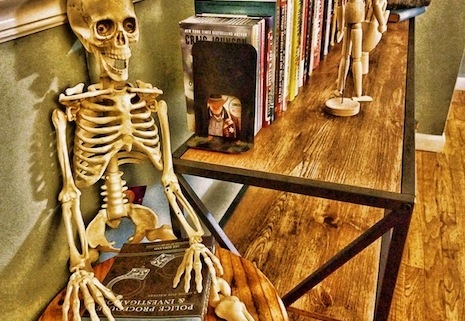
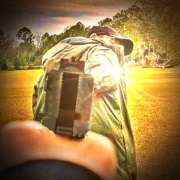
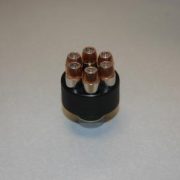
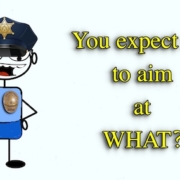
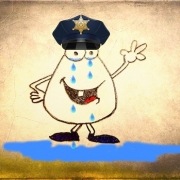
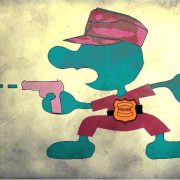

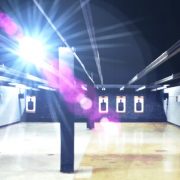



I like the quiz! I saved it off for future reference. Thanks.
Thank you for all the book recommendations. I’m new to the blog and am finding it so helpful!